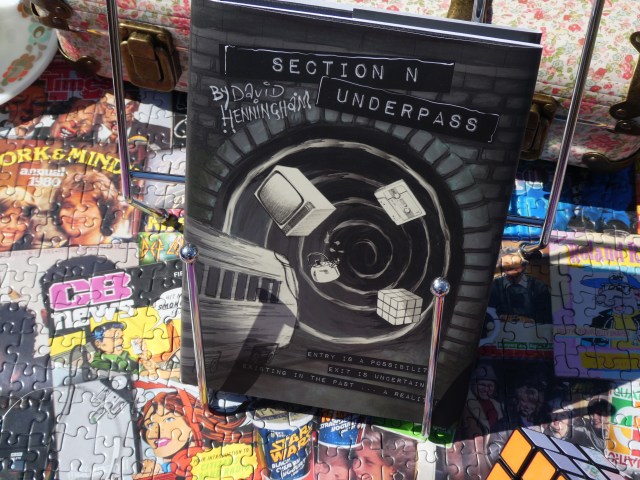It does not seem long ago that I was heading into the shop on Harlesden high street, and soon afterwards coming out with a five-pack of TDK blank cassettes. It was all part of the plan for a busy weekend: Lionel Ritchie’s Can’t Slow Down needed to be recorded along with songs from The Selecter, Madness, Fat Larry’s Band and Elton John.
On Sunday, the Top-40 chart show on the radio was a priority: silence was golden and essential as I taped songs using my Decca cassette recorder and my brother’s portable radio with a little speaker. Cassettes were essential recording media inside homes during the 70s, 80s, and for much of the 90s.
… TDK are better than Memorex, Maxell are not as good as BASF…
Cassettes were big business: television and radio advertising was common. For me, the one television advert, that won hands-down in advertising, was Maxell. The chap in the armchair being hit with a constant gusty flow of dramatic music and air was pure genius – an advert without words but with a clear message.
When it came to recording quality, this is where the debate begun: ‘TDK are better than Memorex, Maxell are not as good as BASF, or Scotch are the best you can get.” To be honest, I thought TDK were the best, but, thinking back, they were all pretty similar in recording quality. I have to point-out that I’m totally ignorant when it comes to the technicalities of cassette tape technology, so I apologise in advance to the those companies concerned who’ve spend thousands of pounds on product development in order to gain the competitive edge.
Once you’ve purchased your cassettes and recorded your songs (getting the timing spot-on when pressing the play and record buttons simultaneously) the next thing was to sit back, relax and enjoy the fruits of your recording skills. Sadly, this was not always the case…
Anyone with any experience of tape playback would instinctively know when sprint over to the cassette player… when the song, that was playing smoothly, abruptly stops and a crunching sound kicks-in – yep, your cassette is being chewed! Now, if you were quick off the mark, you could rescue the cassette and perform emergency surgery using a pencil locked into the spools and reeling the tape back inside its casing; if you were slow off the mark then there was a good chance the only place for the chewed-up tape was in the bin.
Did any of my cassette recordings break the sound barrier like Maxell said in the advert? Not quite, but I did blow the speaker on a cassette player when I turned up the volume to its maximum. I now have curious desire to carry out an experiment: recording the same song on each of the big-branded cassettes, then listening-back at various volume levels. The reality is that the experiment will never take place: I’m about 25 years too late and my hearing is not as good as it once was. Also, I wouldn’t be so keen to see which cassette breaks the sound barrier, as I’d be more concerned about breaking my eardrums!
Click-on photo below to watch that Maxell advert and don’t forget to subscribe to my weekly retro posts
Enjoyed the reading about cassette tapes? You’ll enjoy the nostalgic collection featured in the Section N Underpass: a fun and factual look back at British advertising, leisure and entertainment from the 70s and 80s. Get your copy by clicking the front cover below:





Yes I used to record records off the radio as well but I also used record my own records onto cassette using a microphone pressed against the speaker. I used to edit the cassette tapes by pulling them out, cutting them diagonally with scissors and sticking them with sellotape along the back. I used to make my own extra-long mixes like thay. For example there was a record out I liked at the time called “Starladies” and that went on forever. Well it did when I’d edited it!
Brilliant! 🙂 The good old days and the things we did with cassette tapes